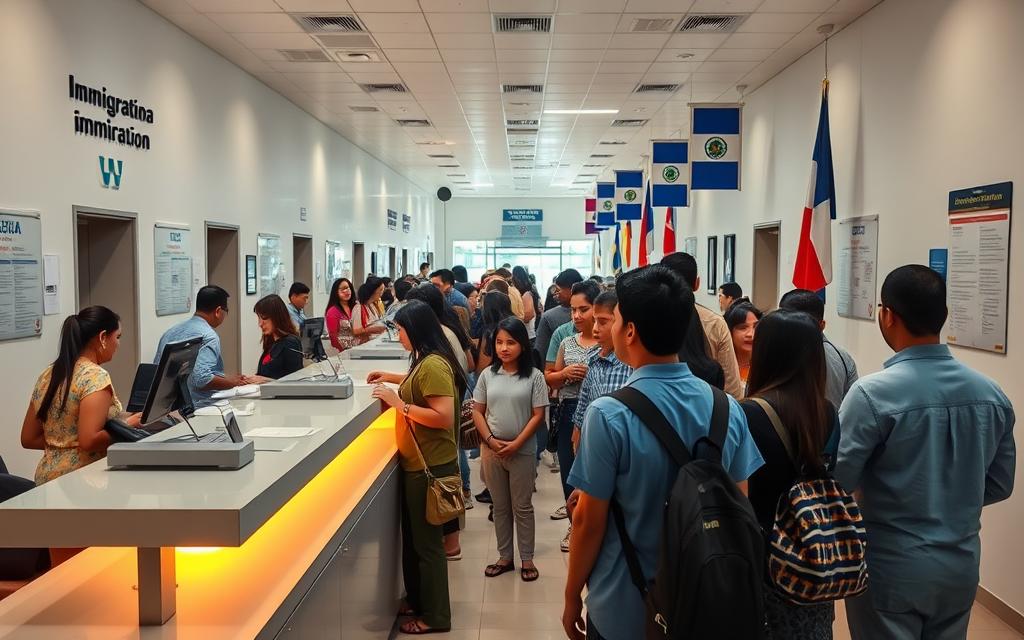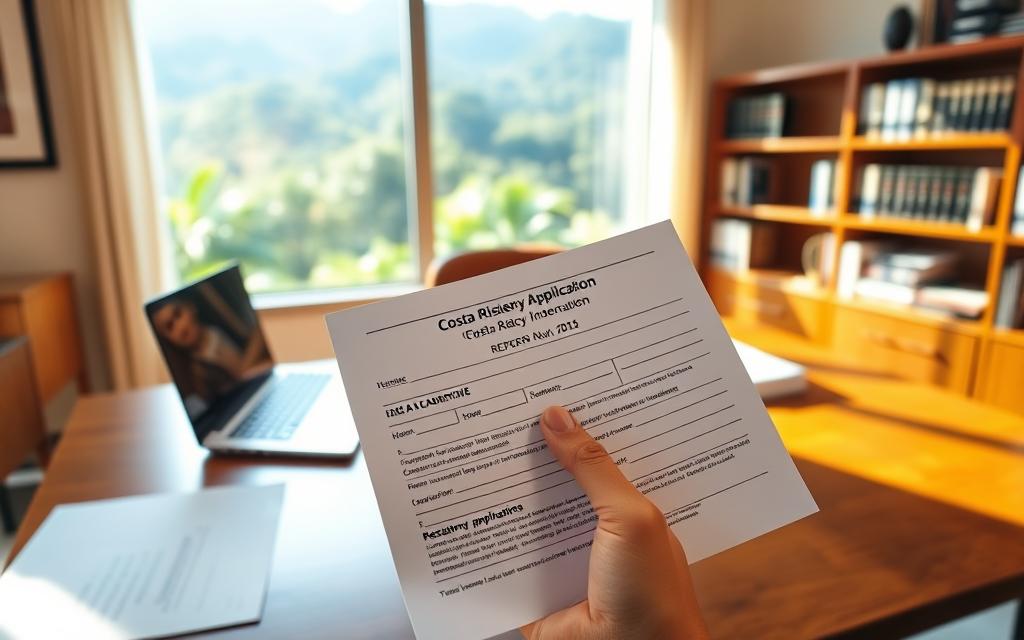Costa Rica Permanent Residency vs Citizenship: Key Differences

Did you know Costa Rica ranks as the happiest and most sustainable country in the world? Its stunning natural beauty, mild climate, and welcoming culture make it a top choice for those seeking a better quality of life. For many, the immigration process here opens doors to endless opportunities.
Whether you’re considering a visa, residency, or citizenship, Costa Rica offers attractive pathways tailored to your needs. From the Rentista Visa to the Investment Visa, each option comes with specific requirements and benefits. Understanding these processes is key to making informed decisions.
In this article, we’ll guide you through the essentials of becoming a resident or citizen. From document requirements to timelines, we’ll provide clear, practical information to help you navigate this journey. Explore more about how to get residency in Costa and take the first step toward your new life.
Overview of Life in Costa Rica and Immigration Opportunities
Living in Costa Rica offers a unique blend of natural beauty and cultural richness. From its pristine beaches to lush rainforests, the country is a paradise for nature lovers. Its vibrant culture, friendly locals, and sustainable lifestyle make it a top choice for expats and families.
Embracing Natural Beauty and Culture
Costa Rica is home to some of the world’s most diverse ecosystems. National parks, wildlife reserves, and tropical forests are just a few highlights. The country’s commitment to sustainability ensures these treasures are preserved for future generations.
Cultural festivals, traditional cuisine, and warm hospitality define the Costa Rican way of life. Expats often find it easy to integrate into local communities, thanks to the welcoming environment.
A Welcoming Environment for Expats and Families
Costa Rica’s high quality of life attracts families and individuals alike. The country offers excellent healthcare, education, and public services. These factors, combined with a relaxed pace of life, make it an ideal destination for relocation.
Various residency options, such as the Rentista or Investor Visa, provide pathways to living in this beautiful country. Each option comes with specific requirements, like a steady income or investment in local assets. These processes are designed to help expats transition smoothly into their new lives.
Whether you’re seeking a temporary or permanent stay, Costa Rica’s immigration system supports your goals. With its unmatched natural beauty and welcoming community, it’s no wonder so many choose to call this country home.
Understanding Costa Rican Residency Options
Costa Rica’s immigration system offers flexible pathways for individuals seeking to live in this tropical paradise. Whether you’re planning a short-term stay or a long-term relocation, understanding the available options is crucial. Temporary and permanent residency programs cater to different needs, ensuring a smooth transition for applicants.
Temporary Residency: Rentista, Investor, and Retiree Visas
Temporary residency is ideal for those who want to experience life in Costa Rica before committing to a long-term stay. The Rentista Visa requires a steady income of $2,500 per month for two years or a $60,000 bank deposit. This option is perfect for individuals with reliable financial resources.
The Investor Visa, on the other hand, demands a minimum investment of $150,000 in real estate or local businesses. It’s a great choice for those looking to contribute to the economy while securing their stay. For retirees, the Pensionado Visa offers a pathway with a monthly pension of at least $1,000, providing access to the country’s excellent healthcare and social services.
Permanent Residency: Requirements and Advantages
After holding temporary residency for a specific period, applicants can transition to permanent residency. This status offers long-term stability and access to local benefits like healthcare and education. Requirements include proof of financial stability, a clean criminal record, and valid documentation.
Permanent residency also allows applicants to integrate fully into Costa Rican society. It’s a stepping stone for those considering citizenship in the future. For more details on the legal requirements for residency, explore our comprehensive guide.
Choosing the right residency category depends on your financial situation and lifestyle goals. Whether you’re an investor, retiree, or someone seeking a new adventure, Costa Rica’s immigration system has a pathway for you.
Differences between Costa Rica permanent residency and citizenship
Understanding the legal distinctions between residency and citizenship is essential for making informed decisions. Each status comes with unique rights, obligations, and pathways. Whether you’re aiming for long-term stability or full integration, knowing these differences is key.
Legal Rights and Work Permissions
Residency allows you to live and work in Costa Rica, but with certain restrictions. For example, temporary residents may need a work permit, while permanent residents enjoy broader employment rights. However, only citizens have unrestricted access to all job types and sectors.
Citizenship grants full legal rights, including the ability to vote and participate in civic activities. It also provides access to social security and other public benefits. This level of integration is ideal for those planning to settle permanently.
Processing Time and Document Requirements
The application process for residency typically takes 10 to 12 months. Required documents include proof of income, a clean criminal record, and valid identification. Permanent residency often requires holding temporary status for three years.
Citizenship applications, on the other hand, can take 10 to 12 months. Applicants must pass exams in Spanish and Social Studies. For those married to a Costa Rican national, the process is shorter, requiring two years of marriage and residency.
For more details on dual citizenship requirements, explore our comprehensive guide. Each step of the process is designed to ensure compliance with legal standards and smooth integration into Costa Rican society.
Navigating the Residency Application Process

Applying for residency in Costa Rica requires careful preparation and attention to detail. The process involves gathering and submitting essential documents to meet legal requirements. Proper planning ensures a smooth and successful application.
Essential Documentation: Birth Certificates, Background Checks, and More
The first step is to collect all necessary paperwork. Key documents include a birth certificate, police clearance, and proof of income. These must be apostilled or legalized to meet Costa Rican standards.
For the birth certificate, ensure it’s recent and includes an apostille. Police clearance should confirm a clean criminal record. Proof of income can be bank statements or employment letters, depending on the visa type.
Additional documents may include marriage certificates, medical records, and passport copies. Each applicant must submit their own set of papers, including recent photos and fingerprints.
Tips for a Smooth Application Process
Start early to avoid delays. Double-check all documents for accuracy and completeness. Translations into Spanish may be required for non-Spanish paperwork.
Work with a legal expert to ensure compliance with all requirements. This minimizes errors and speeds up the process. Thorough preparation from the outset is the key to success.
Exploring the Pathways to Costa Rican Citizenship
Costa Rica offers two distinct pathways to citizenship, each with unique benefits and requirements. Whether you’re aiming for long-term integration or seeking citizenship through marital ties, understanding these options is essential. Both routes involve specific steps, including language and civic tests, to ensure applicants are well-prepared for their new status.
Citizenship by Residency vs. Citizenship by Marriage
One pathway to citizenship is through long-term residency. Applicants must live in Costa Rica for at least seven years to qualify. This process requires proof of continuous residency, a clean criminal record, and financial stability. Permanent residency holders can transition to citizenship after meeting these criteria.
Another option is citizenship through marriage to a Costa Rican national. This route requires at least two years of marriage and residency in the country. Applicants must provide marriage certificates and proof of cohabitation. This pathway is often faster and involves fewer steps compared to the residency-based option.
Language and Civic Tests: What to Expect
All citizenship applicants must pass language and civic tests. The language exam assesses proficiency in Spanish, while the civic test covers Costa Rican history, culture, and government. These exams ensure applicants are well-integrated into society and understand their rights and responsibilities as citizens.
Working with a lawyer can simplify the process. Legal experts help gather required documents, prepare for tests, and navigate the application timeline. Their support reduces complexities and increases the chances of a successful outcome.
For more details on what to do after obtaining residency, explore our comprehensive guide. Whether you choose residency or marriage as your pathway, thorough preparation is key to achieving your goal of becoming a Costa Rican citizen.
Financial and Legal Considerations in Immigration
Navigating the financial and legal aspects of immigration is crucial for a successful transition to Costa Rica. Understanding the requirements and preparing accordingly can make the process smoother and more efficient. Let’s explore the key factors to consider.
Income Requirements and Investment Thresholds
Financial stability is a cornerstone of the immigration process. For temporary residency, applicants must meet specific income or investment thresholds. For example, the Rentista Visa requires a steady monthly income of $2,500 or a $60,000 bank deposit. This ensures applicants can support themselves without relying on local resources.
The Investor Visa demands a minimum investment of $150,000 in real estate or local businesses. This option not only secures residency but also contributes to the country’s economy. Meeting these financial benchmarks is essential for a successful application.
Legal Counsel and Compliance Tips
Legal compliance is equally important. Working with experienced legal counsel can help navigate complex requirements and avoid costly mistakes. Lawyers assist in gathering necessary documents, ensuring accuracy, and meeting deadlines.
Permits play a vital role in maintaining legal status. Temporary residents may need a work permit to engage in employment. Full work rights are typically granted only after transitioning to permanent residency, which usually takes three years.
Balancing financial readiness with legal preparedness is key. For more insights, explore our guide on investor residency options. Thorough preparation ensures a smooth and successful immigration journey.
Practical Insights: Living as a Resident vs. a Citizen
Expats in Costa Rica enjoy a high quality of life with access to excellent services. Whether you’re a resident or a citizen, the country offers a welcoming environment. However, the level of integration and rights varies between these statuses.
Everyday Benefits and Community Integration
Residents in Costa Rica experience a comfortable lifestyle with access to healthcare, education, and public services. Temporary residents may need a work permit to engage in employment, while permanent residents enjoy broader rights. This allows them to integrate into local communities more easily.
Citizens, on the other hand, have unrestricted access to all job types and sectors. They also benefit from social security and other public programs. This full integration fosters a stronger sense of belonging within Costa Rican society.
Access to Social Services and Voting Rights
One of the key distinctions between residents and citizens is access to social services. While residents can use healthcare and education systems, citizens have priority in certain programs. This ensures they receive comprehensive support.
Voting rights are another significant difference. Only citizens can participate in elections, giving them a voice in shaping the country’s future. This civic engagement enhances their connection to the community.
For those considering long-term plans, understanding these differences is crucial. Whether you choose residency or citizenship, each option offers unique advantages. Explore the benefits of naturalization to make an informed decision.
Conclusion
Choosing the right immigration path in Costa Rica can transform your life. Whether you opt for residency or citizenship, each option offers unique benefits tailored to your goals. Residency provides stability and access to essential services, while citizenship grants full integration and voting rights.
The process involves specific steps, from gathering documents like birth certificates to meeting financial requirements. Working with a lawyer ensures compliance and simplifies the journey. Legal expertise is invaluable for navigating the complexities of immigration laws.
For personalized guidance, contact our experts at JAROS CR. We’re here to help you make informed decisions and achieve your dream of living in this beautiful country. Take the first step today and explore the possibilities that await you in Costa Rica.


